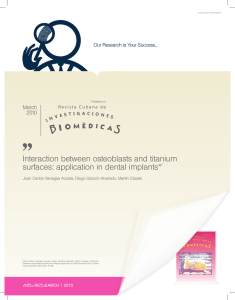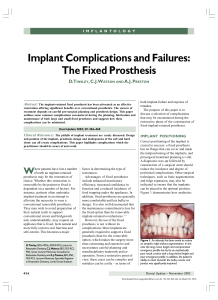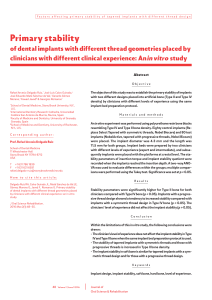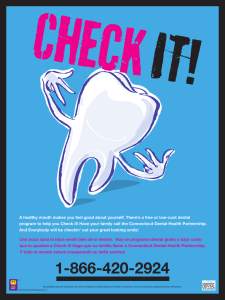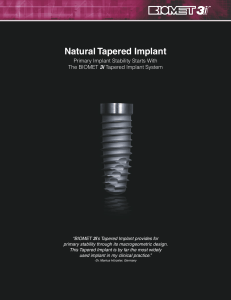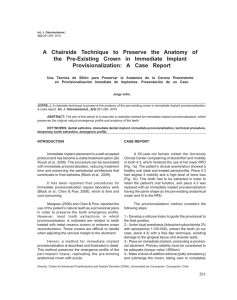all what you need to know about implants and before
Anuncio
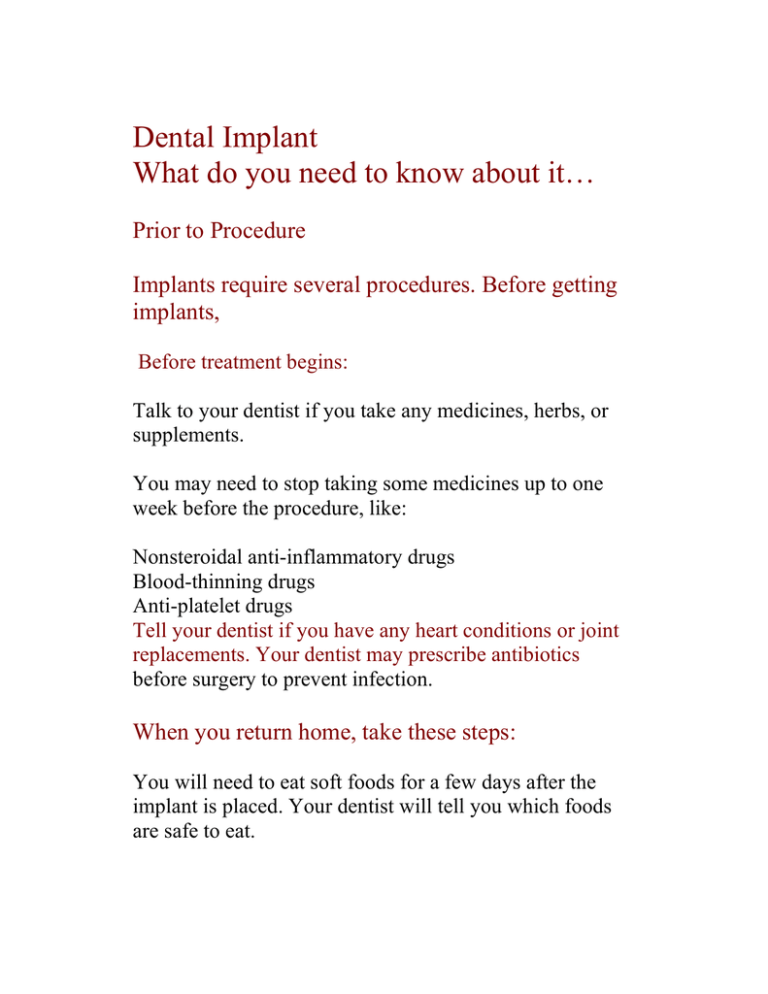
Dental Implant What do you need to know about it… Prior to Procedure Implants require several procedures. Before getting implants, Before treatment begins: Talk to your dentist if you take any medicines, herbs, or supplements. You may need to stop taking some medicines up to one week before the procedure, like: Nonsteroidal anti-inflammatory drugs Blood-thinning drugs Anti-platelet drugs Tell your dentist if you have any heart conditions or joint replacements. Your dentist may prescribe antibiotics before surgery to prevent infection. When you return home, take these steps: You will need to eat soft foods for a few days after the implant is placed. Your dentist will tell you which foods are safe to eat. You will need to have regular follow-up visits to monitor your implant, teeth, and gums to make sure they are healthy. Avoid habits that can damage your teeth, such as chewing ice, biting your fingernails, and grinding your teeth. What exactly are dental implants? Dental implants are artificial tooth root replacements. Our Doctor places dental implants in the area of the jaw where the restoring dentist needs roots in order to build a crown, a bridge, or a more secure denture. An implant is not unlike a foundation underneath a house; invisible to the casual observer but necessary for proper support of the final product. Made of titanium metal, implants are completely biocompatible, which means accepted by the body without rejection. How long does the procedure take? The duration of the implant placement procedure varies depending on the number of implants being placed. The time could be as little as thirty minutes for one implant or as much as several hours for multiple implants. During that time the patient receives a local anesthetic, and optionally, oral conscious sedation for relaxation purposes. In terms of total time from the placement of the implant(s) until the placement of the final restoration(s), the time varies depending on several factors. These factors include whether the implants are placed in the upper or lower jaw, the quality of the bone in the jaw, etc. A good basic guideline would be that the implants must settle and bond to the bone for approximately four months for the lower jaw and six months for the upper jaw. After the bonding of the implant has occurred, then the restoring dentist can begin the procedures necessary to make the final crowns, bridges, or dentures. A reasonable time frame from start to finish would be approximately 6 to 9 months with variability based on the individual case. Will it hurt? Patients often tell us that the implant placement procedure is far more comfortable than they had originally anticipated. Patients are given a variety of medications to take before the procedure in order to reduce swelling, pain, or potential infection. Our Doctor will also prescribe a strong pain medication to take after the procedure. However, many patients only need to take one or two of the pain pills, and then they find themselves comfortable within a day or so. Many patients, even after multiple implant procedures in one day, were able to return to work the following day. How long will I have to go without teeth? In most cases, you won’t have any time without teeth. We can often provide temporary replacement teeth the same day the implants are placed to allow for proper cosmetic appearance and chewing function. There are some exceptions to this rule, usually involving full denture cases. Some of these patients may spend about five days without a denture during the most critical phase. Most people can expect to leave the office with temporary replacement teeth the same day that the doctor places the implants. How long do the implants last? Implants have been phenomenally successful in the vast majority of patients. Proper patient selection and proper technique are a must to ensure a great longevity for the implants. Once implants are placed, patient must make sure to perform regular maintenance. The dental office will provide all the information needed to accomplish this task. Implant success rates of over 96 percent are not uncommon. The small numbers of failures that have occurred with today's modern implants are with patients who fall into high risk groups such as heavy smokers, diabetics, people with bone diseases, etc. We will run various diagnostic tests and discuss oral habits before he places the implants if any of these conditions are a potential concern. Smokers can enjoy successful implants provided that they refrain from smoking during certain parts of the healing phase. Even implants placed thirty years ago are still in place and servicing the patients who received them. While no one can guarantee the longevity of any dental procedure, with proper patient selection and proper maintenance procedures after implant therapy, patients can expect an excellent prognosis.
